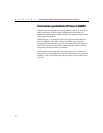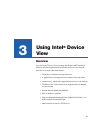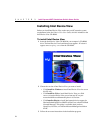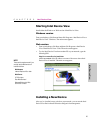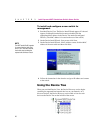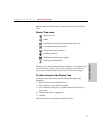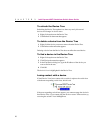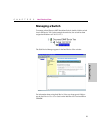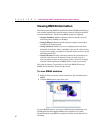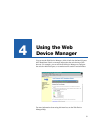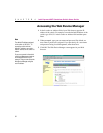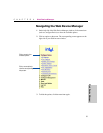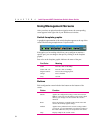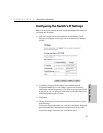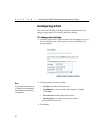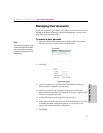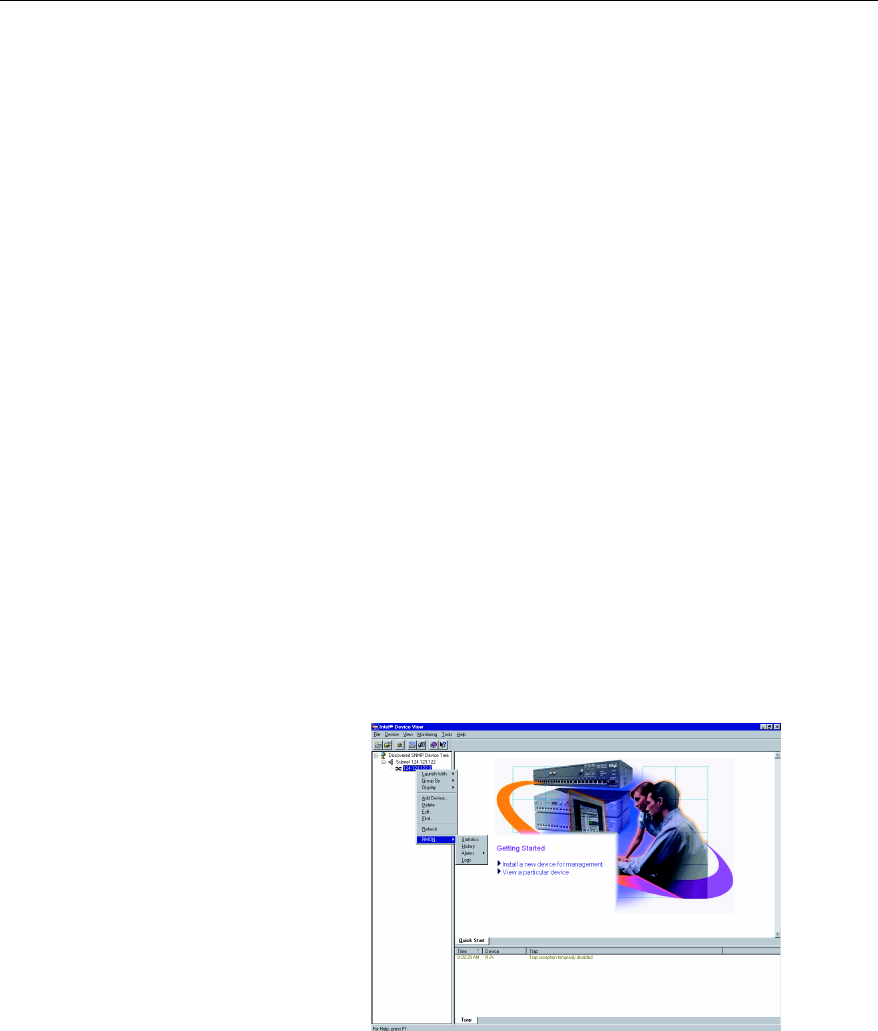
30
CHAPTER 3
Intel Express 460T Standalone Switch Users Guide
Viewing RMON information
The remote monitoring (RMON) specification extends SNMP functionality to
look at traffic patterns on the network instead of merely looking at the traffic
for an individual device. The following RMON groups are supported:
• Group 1 (Statistics): Monitors utilization and error statistics for each
network segment (10 Mbps or 100 Mbps).
• Group 2 (History): Records periodic statistical samples from variables
available in the statistics group.
• Group 3 (Alarms): Enabless you to set a sampling interval and alarm
thresholds for statistics. When a threshold is passed, the switch creates
an event. For example, you might set an alarm to create an event if switch
utilization exceeds 30%.
• Group 9 (Events): Provides notification and tells the switch what to do
when an event occurs on the network. Events can send a trap to a
receiving station or place an entry in the log table, or both. For example,
when the switch experiences an RMON Event, it sends out an Alarm.
The switch also keeps a log that shows a list of the RMON Events and
RMON Alarms that have occurred on the switch.
To view RMON statistics
1 Right-click the icon for the switch in the Device Tree and then point to
RMON.
2 Click the RMON option you want to view.
To access RMON features, you can use LANDesk Network Manager or an
SNMP application that supports RMON such as OpenView. For more
information about using RMON to monitor the switch, see the Intel Device
View Help.



